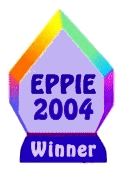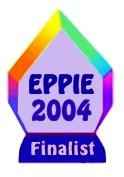Irish/Celtic Fiction
Information and links to Celtic fiction resources supplied by Rick Sutcliffe's Arjay Enterprises.
This page can serve as a portal to Irish story sites in general, to Celtic science fiction and fantasy, or as one gateway into Rick Sutcliffe's Arjay Books, including his own Christian Irish SF.
About Irish Stories
The telling of Irish stories involves part history, part blarney, part whimsey, and
About Irish Celtic science fiction and fantasy
Much of modern fantasy draws heavily on Irish Celtic themes, particularly those pioneered by JRR Tolkien, whose Lord of The Rings is the prototype celtic fiction. Irish Celtic fiction draws on Celtic myth and what is known of Celtic culture. Typical themes include the recognition of honourable, noble leadership on the basis of skill rather than blood (including kings who may have humble origins), heroic struggles, great quests, women as warriors, rich symbolism, a sense of history, the sword, brehon common law, the bard as historian-entertainer, the wise and deeply knowledgeable scholar (not the same, those qualities), and the conflict between good and evil. There may also be druidic/magic/pagan elements, and characters such as elves, dwarves, orcs, dragons, and the like. There is a sense of greatness, of sweep, of nobility, of scope to Celtic fiction that has a lasting appeal.
Elizabeth Moon's Deed of Paksenarrion is classic Celtic fiction with Christian themes, though the redemption/substitutionary sacrifice scenes are very graphically drawn. By comparison, C. S. Lewis's Narnia treats the same themes from a more explicitly Christian point of view and is suitable for children.
About Rick Sutcliffe's Christian Irish SF
Neither magic nor little people are present in Rick Sutcliffe's Christian Irish SF stories set on Greater Hibernia (Ortho earth), but many of the other themes are. This Irish Celtic fiction is "sword-but-not-sorcery", science fiction rather than fantasy (despite involving alternate worlds and histories), and explicitly (though not in-your-face) Christian. Where his characters have special powers or abilities, they are God-given sweat-honed talents, not magical in any sense. Being Irish Celts, his characters do have a predilection for violence, but the stories not dwell on its details. Neither is the veil of privacy ripped away from their intimacy. The Irish of this alternate Hibernia put on their morality plays using a different stage. So, Irish Celtic Christian science fiction, eh?
Rick Sutcliffe's Christian Celtic (Irish) fiction is alternate history and soft science fiction, but not fantasy or chiliastic. It is set among several alternate worlds linked by a medium called the timestream, and involves the characters in ethical decision making. The Greater Hibernia of this Irish SF, f or instance, had its industrial revolution centuries before ours, but in the disasterous aftermath of destructive high-tech wars, eschewed some forms of technology. Of course, some people cheat so there have to be police. And the police supervision by Tara's nobles can be spotty, too, so the high king must take a hand. But he has been deposed and ....
As in the classic Celtic SF, so also here. Rick Sutcliffe's Christian Irish SF paints life on a large canvas, populating it with characters whose deeds are epic, much greater than themselves. Whether saints or sinners, their actions are grandly undertaken and have grander consequences, much the way the Irish like to think of themselves. However, the Hibernia of this Irish SF is no Tirdian whimsical what-if emerging nation wrestling with the lost dreams of a seven-century captivity, but a living, vibrant warrior-scholar meritocracy with a sense of destiny and a burden to enlighten less civilized folk such as the English. The Hibernians of these Irish SF yarns are like the Irish of Tirdia--often larger than life, sometimes larger than death.
If a sixty-year interregnum between legitimate kings were not a sufficient sweep of history for a single series, the events in Rick Sutcliffe's Irish SF are set in a context of ten centuries' Irish dominence over their earth and others. And, there are hints that a larger history still has shaped what they are. Of course, the very cultural hubris that allows this Hibernia to become rulers of all they survey, even to name their world after one island, has its dark side, periodically expressed in an ugly racism that threatens to destroy all.
Rick Sutcliffe's Christian Irish SF is told in story cycles. These are interleaved plots involving related characters from various time periods, sometimes intersecting with stories from another plot line or even another book. For each volume the Celtic knot of plots has a converging resolution, but the stage remains set for further action in subsequent volumes as the knot tightens and the action builds toward two crises in Hibernia's future history--a nexus that will generate yet another earth (and more stories), and the end of the interregnum, when Ireland could once again have a king on her throne.
But this Irish SF is Science Fiction, so the characters make liberal use of high technology, sometimes contrary to their own laws, which forbid certain techniques as too dangerous. Hibernia had her industrial revolution centuries ago, but she's also seen nuclear and biogenetic warfare. Some have never stopped fighting those wars. Others would bring back the horrors that once nearly depopulated the planet. The king and most of his family struggle with balancing personal Christian committment, patriotism, their duty to the people, and the need to fight for freedom under the Lord of Heaven. Can they stop the high tech schemes devised by some of their own countrymen to enslave or obliterate the populations of whole worlds? Like real life, this Irish SF, though it can be entertaining, is not simple. Readers are warned that they may be provoked to think about religion, ethics, technology, and the meaning of history!
Here's an interesting link to a scholarly call for papers on Celtic SF studies that mentions Rick Sutcliffe as a possible subject for study.
The first series, The Interregnum, takes place largely on Ortho Earth, also called Greater Hibernia, and covers the period 1941-2001, during which there was a ban on the throne and the High King's family, and a corrupt oligarchy of nobles ruled.
Volume I, The Peace, published as an electronic book, won an award nomination, was a best seller with its first publisher and received very positive reviews, particularly from Analog magazine's Tom Easton. It was republished by Writers Exchange ePublishing in December 2002.
Volume II, The Friends, is also available in electronic book form and in paper from Booksurge. It was published by Writers Exchange ePublishing in June 2003 and was named the best Science Fiction novel of the year with an EPPIE 2004 award.
Volume III, The Exile was published by Writers Exchange ePublishing in July 2003, and was an EPPIE 2004 finalist for Science Fiction. It is available in both electronic book and paper form.
Volume IV, The General, was published by Writers Exchange ePublishing in March 2006 and is available from them and their retailers in a variety of formats.
Volume V, The Nexus, was published by Writers Exchange ePublishing in April 2006 and is available from them and their retailers in a variety of formats.
Volume VI, The Builder, was published by Writers Exchange ePublishing in March 2012.
The second series, The Throne, takes place almost entirely on Ortho Earth, also called Greater Hibernia, and covers the period 1000-2001 and the kings and queens of Hibernia during that time.
Book 1, Culmanic Parts, contains a memoir of Catherine the great, first High Queen from 1014, the story of the thirteenth century culmanics who began Hibernia's scientific and technological revolution, and the first part of Amy Rea's fourteenth century story.
Book 2, Rea's Blood or Navy Girl or follows Amy Rea through to the battle of Trafalgar in 1440. Expected in November 2015
Book 3, Tara's Mother concludes the story of the war with Spain in 1441 and the peace that follows. Expected in January 2016
Book 4, The Paladin tells the story of Hibernia's throne from 1492 through 2001, concluding both series. Finished; Awaiting second poof reading.
All of Rick Sutcliffe's books can be purchased via links here and of course from the Publisher and other fine retailers in many formats..

|

|
|
The Friends
|
The Exile
|
|

